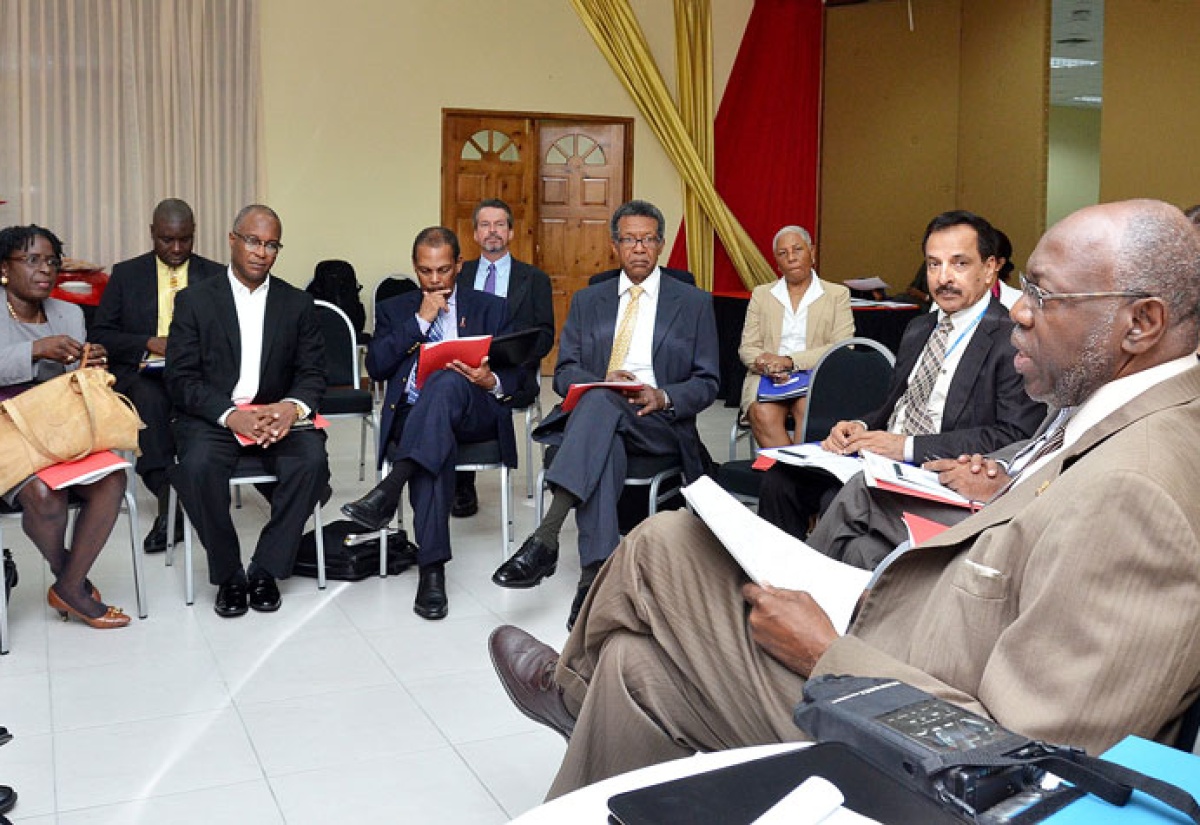Caribbean Can Achieve Zero Mother-To-Child Transmission of HIV By 2015
By: , December 5, 2013The Key Point:
The Facts
- Caribbean countries will be required to not just work harder but smarter, while embarking on more innovative actions to ensure the sustainability of programmes.
- Jamaica has moved from a five per cent ownership in relation to the HIV programme to 46 per cent.
The Full Story
Health Minister, Hon. Dr. Fenton Ferguson, says that the Caribbean is in a good position to become the first region to achieve zero mother-to-child transmission of HIV by 2015.
“I know in the Caribbean, our countries have been moving seriously. We have made tremendous gains as it relates to mother-to-child (HIV) transmission,” Dr. Ferguson said.
He was addressing the Joint United Nations Programme on HIV/AIDS (UNAIDS) and Lancet Commission Caribbean Regional Dialogue on Wednesday, December 4, at the New Kingston Conference Centre.
The Minister said that while the Caribbean has the highest prevalence of HIV/AIDS, next to Sub-Saharan Africa, tremendous gains have been made over the last decade in reducing the figures.
“It is not just a matter of trying to protect those gains, but how we go forward in this new dispensation…this is why as nation states, we are extremely pleased about the development in May, of the UNAIDS and Lancet Commission. We are extremely happy that our Prime Minister, the Most Hon. Portia Simpson Miller, was chosen as one of the 37 Commissioners on that Commission,” he said.
The Health Minister represented the Prime Minister at the first meeting of the Commission held in June in Malawi. He said that today’s consultation, which was one of the outcomes of the June meeting, provides an opportunity for the region to set its own agenda regarding an effective HIV/AIDS response.
“We cannot argue in the Caribbean, coming out of the consultation, that we did not get an opportunity to put our agenda on the table and therefore, the hours we spend today, will call for our best arguments. The agenda has been set based on the questions asked and the expected outcomes,” he said.
Dr. Ferguson stressed that in going forward, as it relates to the future of the AIDS response, Caribbean countries will be required to not just work harder but smarter, while embarking on more innovative actions to ensure the sustainability of programmes.
“For most of us, I think except probably for Guyana and Haiti, we have been classified as upper middle income states, and that has serious implications for our sustainability, both for the AIDS programme and for health in general (especially as it relates to funding),” the Minister said.
This is why, he said, he is pleased that Jamaica has moved from a five per cent ownership in relation to the HIV programme to 46 per cent.
According to the report from the UNAIDS and Lancet Commission’s first meeting, more than 50 per cent of funding for the AIDS response is now generated domestically, and is a clear demonstration of country ownership, which should help to maintain and attract additional external resources. It further stated that the extent to which countries lead and co-ordinate their AIDS responses will determine the extent to which AIDS and health programmes become sustainable.
“Our great concern, is that with the fallout relative to funding, that in this transitional period, even at 46 per cent, we still need support from our global partners and that is why we continue to push forward, not just in the context of having taken ownership, but in the context of International Monetary Fund (IMF) agreements that has also put certain strictures,” the Minister said.
The UNAIDS and Lancet Commission is co-chaired by President of the Republic of Malawi, Her Excellency Joyce Banda, Chairperson of the African Union Commission, Nkosazana Dlamini Zuma, and Director of the London School of Hygiene and Tropical Medicine, Peter Piot.
Drawing from the pioneering experience of the global AIDS response, the Commission brings together heads of state, civil society (including people living with HIV and young people), policy-makers, development experts and private-sector leaders, to shape the debate on the future of the AIDS response and health in the post-2015 development agenda and accelerate progress towards ending AIDS.
In order to stimulate global participation and debate on the framing of the recommendations, the Commission is holding a series of regional dialogues to engage and seek inputs from health, policy, development, governance, civil society and other stakeholders in all regions of the world.
The regional dialogue for the Caribbean aims to ensure that regional perspectives are reflected in the work of the Commission and that they contribute to shaping the future of HIV, health and development in the context of the post-2015 agenda.
A report will be prepared summarising the reflections and recommendations from the dialogue, to be shared with the Working Groups and the Commission.


